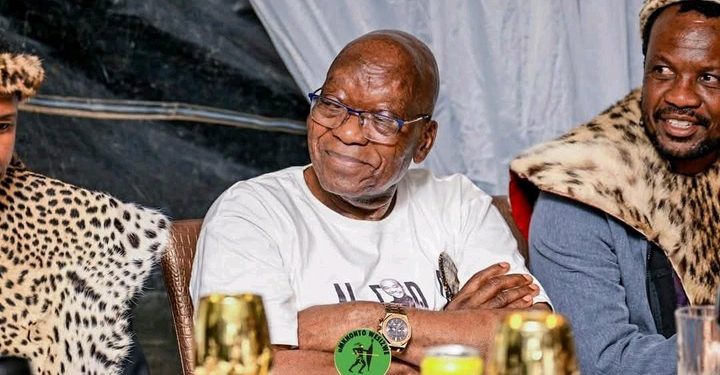President Cyril Ramaphosa has sparked fresh political debate by declaring that former President Jacob Zuma remains firmly committed to the African National Congress (ANC). In a recent public address, Ramaphosa portrayed Zuma as a lifelong ANC stalwart, stating his allegiance to the party is “etched into his DNA” and suggesting he would remain a member until death.
The president’s comments appear aimed at projecting unity within the ANC amid growing internal divisions and coalition pressures. By framing Zuma as an unwavering party loyalist, Ramaphosa sought to reinforce the ANC’s image of continuity ahead of crucial elections.
However, this narrative clashes with Zuma’s recent actions. The former president has increasingly distanced himself from the current ANC leadership through critical public statements and engagements with political alternatives. His visible rift with Ramaphosa’s administration has led analysts to question whether Zuma is gradually exiting the ANC fold.
Political observers view Ramaphosa’s remarks as a strategic attempt to maintain the ANC’s traditional support base. With voter confidence wavering, the party risks further erosion if veteran leaders like Zuma openly defect. Yet the growing gap between Ramaphosa’s unity rhetoric and Zuma’s conduct reveals deepening fractures within the organization.
The situation reflects broader shifts in South African politics, where historical loyalties are becoming more fluid. Zuma’s enduring influence and ambiguous relationship with the ANC highlight the party’s struggle to balance its liberation-era identity with contemporary challenges.
As election pressures mount, Ramaphosa’s optimistic portrayal of ANC unity faces increasing scrutiny. How the party manages this tension—and whether Zuma’s allegiance holds—could significantly impact both its public perception and electoral prospects in the coming months.






















